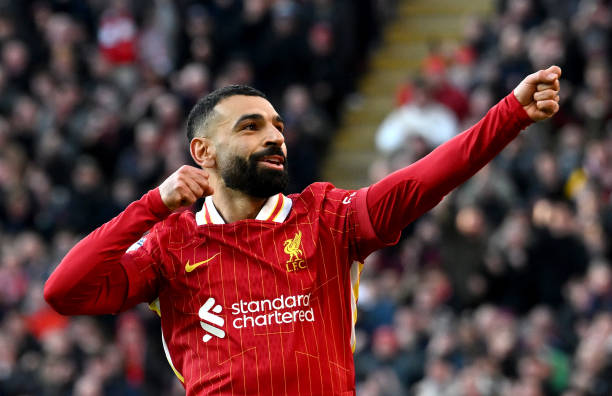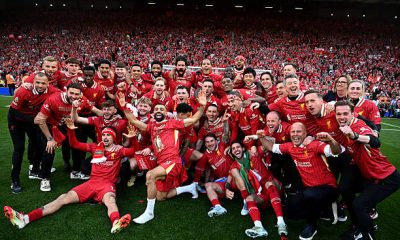
The Premier League is widely regarded as the richest and most competitive football league in the world. From record-breaking broadcasting deals to astronomical player salaries, the financial success of the Premier League has been unparalleled. But how did it become so dominant in terms of wealth and global influence? In this in-depth post, we will explore the factors, events, and strategic decisions that turned the Premier League into the financial powerhouse it is today.
The Birth of the Premier League: A Game-Changer for English Football
In 1992, English football was at a crossroads. The First Division clubs of the Football League, facing stagnation and declining television revenue, decided to break away from the Football League to form the Premier League. The move was revolutionary, but it also allowed the clubs to negotiate their own broadcasting deals, a significant departure from the revenue-sharing model of the Football League.
By creating a separate, more commercially viable entity, the Premier League immediately gained the flexibility to maximize profits. This decision would set the stage for the financial transformation of English football.
Early Broadcast Deals and Commercial Success
In the early days of the Premier League, one of the most crucial factors in its financial ascent was its ability to secure lucrative broadcasting deals. In 1992, the Premier League struck its first significant television deal with Sky Sports, a fledgling broadcaster at the time. The deal was worth £191 million over five years, a staggering amount at the time, and it marked the beginning of a new era in English football.
Sky’s investment brought with it extensive coverage of Premier League matches, which included live broadcasts, analysis, and exclusive content. This elevated the profile of the league, both domestically and internationally. As the popularity of the Premier League grew, so did its broadcasting deals.
The Explosive Growth of Broadcasting Revenue
The PL’s broadcasting rights have experienced an exponential rise since that initial deal in 1992. In the 2016-2019 cycle, the league’s domestic television rights were sold for a record £5.14 billion, a figure that would continue to grow in subsequent years. In addition to the domestic deals, the Premier League’s global broadcasting rights have been sold for even higher figures. For the 2019-2022 cycle, international broadcasting rights were sold for £4.2 billion, further cementing the league’s position as the richest in the world.
These broadcasting deals not only made the Premier League the most-watched football league globally but also ensured a steady influx of cash, which was distributed among the clubs. The enormous size of the television contracts is one of the primary reasons for the Premier League’s financial dominance, providing clubs with substantial revenue even before they sell a single ticket or merchandise item.
The Influence of Foreign Investment
As the EPL’s revenue surged, so did its appeal to foreign investors. Over the years, Premier League clubs have been acquired by wealthy foreign owners seeking to capitalize on the league’s global popularity and financial potential.
High-profile takeovers, such as the acquisition of Manchester City by the Abu Dhabi United Group in 2008 and Chelsea by Russian billionaire Roman Abramovich in 2003, played pivotal roles in reshaping the landscape of the league. These foreign investments brought substantial financial resources, enabling clubs to compete in the transfer market and attract world-class players.
The influx of foreign ownership also meant that the Premier League became a global product, accessible to fans worldwide through international broadcasts, club-sponsored events, and online streaming platforms. This globalization significantly contributed to its wealth, as these owners brought in not just money, but also expertise in running businesses on a global scale.
The Power of Commercial Revenue
Alongside broadcasting, commercial revenue streams have played a significant role in the Premier League’s rise. Clubs now earn vast sums of money from sponsorships, merchandise sales, and even naming rights for stadiums. For instance, Manchester United’s sponsorship deal with Chevrolet was valued at around £53 million annually, one of the most lucrative deals in the history of football.
PL clubs have become brands in their own right, attracting sponsorships not only from traditional sectors like sportswear and beverages but also from technology, financial services, and even cryptocurrency companies. These diverse and lucrative deals have diversified clubs’ revenue sources, reducing their dependence on matchday income and making them more resilient in the face of economic fluctuations.
Merchandise Sales: A Global Enterprise
The global appeal of EPL clubs has made them attractive partners for merchandise deals. High-demand items like jerseys, training gear, and other fan apparel are sold worldwide. Manchester United, for example, reportedly generates over £100 million annually through the sale of branded merchandise. This income is not only a direct revenue stream for the clubs but also serves to reinforce their global presence.

The Player Transfer Market: Fueling the Economy
One of the most visible aspects of the Premier League’s financial dominance is the eye-watering sums spent in the transfer market. Premier League clubs have consistently broken transfer records, both domestically and globally. The transfer of Jack Grealish to Manchester City for a British record £100 million in 2021 was just one example of the immense financial muscle Premier League clubs wield in the market.
The influx of cash from broadcasting and commercial deals allows Premier League clubs to attract top-tier talent from all over the world. This talent pool, in turn, raises the level of competition, which attracts even more viewers, leading to an upward spiral of financial success.
The Impact of the Premier League’s Financial Success
A Competitive Advantage for Top Clubs
With the massive financial resources available, top Premier League clubs have gained a competitive advantage over many of their European counterparts. The ability to offer high wages and transfer fees has led to a concentration of talent in the Premier League, raising the overall standard of play and making the league more exciting to watch. This, in turn, leads to higher TV ratings, increased sponsorship deals, and even more substantial revenue for the clubs.
The Financial Fair Play Debate
As the Premier League continues to grow financially, concerns around Financial Fair Play (FFP) regulations have also surfaced. The UEFA Financial Fair Play regulations were designed to prevent clubs from overspending and accumulating unsustainable debts. While some Premier League clubs have faced scrutiny over their spending, the rules have been a point of debate, with clubs using various loopholes to comply while continuing to spend heavily.
Despite this, the sheer scale of revenue generated by the Premier League, especially from broadcasting rights, has allowed clubs to maintain competitive teams without jeopardizing their financial stability.
SUGGESTED POSTS
Cristiano Ronaldo: 5 Incredible Milestones That Prove His Greatness Continues @40
Conclusion: The Unstoppable Rise of the Premier League
The Premier League’s transformation into the richest football league in the world is the result of several key factors, including lucrative broadcasting deals, foreign investment, commercial success, and a booming transfer market. These elements, combined with the league’s ever-growing global appeal, have made the Premier League an economic juggernaut.
As long as the Premier League continues to adapt to changing global trends, leverage its commercial opportunities, and attract top talent from around the world, it will likely remain the richest and most influential football league on the planet. The financial strength of the Premier League is not just a testament to the league’s success; it’s a blueprint for the future of global sports enterprises.









